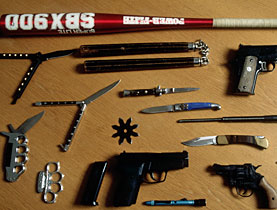Drinking and smoking lose favour with youth

Young people in Switzerland are drinking less alcohol, as well as smoking less tobacco and cannabis than four years ago, according to a study released on Tuesday.
However, a minority of young people is causing concern because they are more likely to take sleeping pills or illegal drugs such as cocaine and heroin.
The findings were presented in Bern by the Swiss Institute for the Prevention of Drug and Alcohol Problems as part of the European School Survey Project on Alcohol and Other Drugs.
“In the general population of young people, substance use is going down for tobacco, alcohol and cannabis,” Gerhard Gmel, director of the study, told swissinfo.
“But there seems to be a [small] high risk group that is dropping more and more out of society, drinking very much and taking more hard drugs.”
While alcohol consumption has gone down, binge drinking still remains an issue, although it has declined.
In 2007, 14 per cent of boys aged 15 and eight per cent of girls of the same age admitted to binge drinking, a decline from 20 per cent and 11 per cent respectively from the last time the survey was conducted in 2003.
“Switzerland has focused a lot on heavy episodic drinking and I think there has been an effect of prevention,” Gmel said.
He highlighted the consequences of binge drinking that include accidents, problems with the police and sometimes very serious intoxication. Alcohol also remains the number one problem when it comes to psychoactive substances.
“You can buy alcoholic drinks at any time at low prices, particularly beer, which is really sold too cheaply today,” commented Michel Graf, director of the Swiss institute.
Gmel echoed his concern on the availability and low prices for both alcohol and tobacco.
“The prices here are the lowest in the world compared to what people earn. Price regulation is one of the best prevention measures we have.”
Increased prices
The study shows that consumption of alcopops has gone down – not least because of increased prices – but young people today seem to be mixing their own alcoholic “cocktails” to make up for that.
“That’s a very clear trend not only coming from this study, but also from others. Of course, young people try to compensate,” Gmel added. “They mix their own drinks and they actually like it because they can better control the taste of how much alcohol is in them.
“Nevertheless, we can see that with the increased prices of alcopops, total consumption is going down and self-mixed spirits consumption is not totally compensating for the drop you have in alcopops, so it’s still a good thing,” Gmel said.
Gmel said that he hoped that funding would be available for another such study in four years time but he said the Swiss government “for some strange reason” had not financed the present one, arguing there were similar research projects.
swissinfo, Robert Brookes
The European School Survey Project on Alcohol and Other Drugs is carried out every four years and in 2007 more than 40 countries took part.
In Switzerland, more than 7,500 young people between the ages of 13 and 16 filled in a questionnaire.
The year 2007 was the second time that Switzerland participated in the survey.
Higher prices for alcopops and cigarettes as well as prevention measures and lifestyle trends contributed to the reduction in drinking and smoking.
But young people find it easy to buy alcohol. Between 75 and 92% of 15-year-old binge drinkers said they were able to obtain it in restaurants and shops.
Cannabis and tobacco consumption: 34.7% of 16-year-old boys and 28.4% of girls of the same age smoked in the month before the survey. Four years ago, the figures were 38.2% and 37.8%.
Prevention measures have to be continued. The consumption of alcohol and other drugs is the most common cause of death among young people aged 15-24.
Between 1 and 3% of those surveyed said they had at least on one occasion consumed heroin, cocaine, crack, LSD or other hallucinogens. These are said to be partly double the figure of 2003.
In comparison with other countries, the report showed Switzerland comes very high in cannabis consumption among those surveyed, it comes in the middle as far as alcohol is concerned and doing, Gmel said, “quite well” with tobacco.
“We still have 30 per cent of smokers in these young groups, which I would say sheds a very poor light on the other countries, and not a very good one on ours,” he commented.

In compliance with the JTI standards
More: SWI swissinfo.ch certified by the Journalism Trust Initiative












You can find an overview of ongoing debates with our journalists here . Please join us!
If you want to start a conversation about a topic raised in this article or want to report factual errors, email us at english@swissinfo.ch.